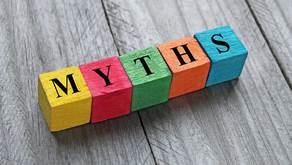Identity Theft Recovery Services
Identity theft harms millions of Americans every year, damaging finances, credit and reputations. Restoring identity can be time-consuming and stressful, and it’s hard to know where to begin.
Start with us.
Bank of Utah partners with NXG Strategies to give you professional, one-on-one assistance to dispute fraudulent incidents and repair your identity.
The service covers all identity theft, even if it’s not related to your bank account. It is free to every Bank of Utah checking account holder and qualified family members who live at the address listed on the account (spouse, IRS dependents, parents, grandparents). You don’t have to do any additional registration, the service is included with your account, from the get-go.
5 Benefits of Our Identity Theft Recovery Services
A fully managed program, Bank of Utah’s recovery services is there for you from the time your identity is stolen until your identity is restored.
You will be assigned a certified, licensed recovery advocate to complete the recovery work* on your behalf, including:
- Researching the extent of the problem, including a review of your credit report
- Assisting you with the process of freezing your credit reports with the major credit bureaus
- Coordinating with other agencies, financial institutions and creditors to resolve incidents
- Helping you replace identity credential documents, such as driver’s licenses or passports that have been lost, stolen or destroyed during your identity theft incident
- Requesting the removal of fraudulent records to recover your identity back to pre-theft status
*If you have a financial loss from your Bank of Utah account, Bank of Utah will help with the attempt to recover the funds, if warranted. If you have financial losses from accounts at other institutions as a result of the identity theft, your identity theft recovery advocate will work with you to recover those.
See terms and conditions.
How to Report Identity Theft and Start the Recovery Process
If you have a Bank of Utah checking account, or you are a qualified family member who lives at the address listed on the account, you already have access to our identity theft recovery services. No additional registration is necessary. To start the identity theft reporting and recovery process:
- Call Bank of Utah’s Customer Service Department at 801-409-5000 or visit any branch. If you are starting the process for a qualified family member who lives at the address on the account, have that person on the phone with you or with you in the branch.
- A Bank of Utah customer service representative will verify that you are a Bank of Utah checking account holder, either the primary account holder or a qualified family member who lives at the address listed on the account.
- The customer service representative will then open a case with NXG Strategies, our identity theft recovery partner. To do so, he or she will ask for the following information:
- The number of individuals on your account affected by the identity theft
- The full name, address, phone number and email address for each person affected
- A brief description of the identity theft
After the employee is finished gathering information, he or she will give you a case number. Your recovery advocate at NXG Strategies will contact you to continue the process. Have your case number available to verify with your recovery advocate.
Frequently Asked Questions
What is Identity Theft?
An identity theft incident occurs when an unauthorized person uses your personal information to commit fraud.
Your personal information includes your name in combination with your Social Security Number, account numbers, date of birth, address, email address, and state- or federal-issued ID such as a driver's license or passport.
Types of identity theft may include account fraud, credit/debit card fraud, tax fraud, employment fraud, government documents and benefits fraud, medical fraud and more.
How Do I Know if I've Been a Victim of Identity Theft?
If you see unfamiliar transactions on your bank account or credit card, you receive statements in the mail from a creditor you don't recognize, or you find notations on your credit file for debts you did not incur, you may be a victim of identity theft.
If you suspect someone might be using your identity information, go ahead and initiate the identity theft recovery services. A recovery advocate will assist you in determining whether you've been a victim of identity theft.
How Long Does the Recovery Process Take?
Because every case is unique, it's difficult to estimate how long the recovery process will take. Your recovery advocate will work on your behalf, with no time limit.
Are There Additional Ways I Should Take Action?
While your recovery advocate will do most of the work for you, including placing fraud alerts with the three major credit bureaus (Experian, Equifax and TransUnion), we recommend that you check your credit reports regularly. You can request these reports at www.annualcreditreport.com.
It is also wise to reach out to the Utah Attorney General's office, which can also provide assistance with identity compromise, theft and misuse.
Are There Other Resources That Will Help Me Understand My Identity Theft Situation and Recovery Process?
Yes, the Federal Trade Commission (FTC) has created an identity theft checklist. While your recovery advocate will take on many of the tasks on your behalf, it is a nice document that explains the process of recovering your identity. If you have any questions based on the FTC's document, you can ask those of your recovery advocate.
What Can I Do to Help Prevent Identity Theft?
You can protect your identity and your money by adopting good security habits. Visit the Financial Security & Education section of our website to learn what the bank does and what you can do to prevent and fight fraud.
Don’t have a Bank of Utah checking account?
We have a variety of account options — some you can even open online in just 5 minutes or less — making it easy to find one that meets your unique needs.







